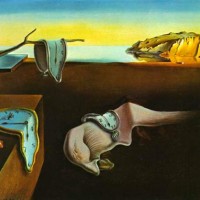
Memory Waves
There has been some pretty interesting research happening recently on the formation of memory. It’s long been known that the hippocampus is the area of the brain critical for memory formation. Damage to this area leads to famous examples of people who lose the ability to form new memories, only able to remember things for a few minutes at a time, living in a constant present. The film Memento brilliantly told the story of a man suffering from a condition like this.
But this is only a partial view. Knowing the hippocampus is critical tells us nothing about the actual process of memory formation. What are the other causal factors? What is the process by which some sensory experiences becomes a long term memory? Out of the countless things I experience in any given day why do certain ones stay and others slip away? On a top level psychological analysis we have one type of answer for this question. Factors that can go into determining whether something is remembered could be the novelty of the experience, its emotional salience, or how and where your attention is directed during this time. But how does this actually work at the cellular level? We don’t just want to know the output, we want to know what’s happening inside the magic box we call a brain!
A set of researchers from the Medical Institute at Cal Tech were able to piggyback an experiment on patients undergoing medical treatment for epilepsy that necessitated opening up the scalp (all subjects were willing!). They presented subjects with a series of images and asked them to remember them. Later they showed the subjects another set of images, half of which had been seen by them in the first round, and asked them which they remembered. Before I tell you what this research uncovered, let me quickly set the stage. Beyond our knowledge of the critical role of the hippocampus, in recent years we’ve discovered another significant fact. Namely that one type of brain wave present in EEG recordings, a rhythm called a theta wave (oscillating at 3-10hz), when present in the hippocampus has been associated with learning and memory. What the researchers in this experiment found was in part a confirmation of this widely held belief regarding the involvement of theta waves in memory formation.
Neurons in the brain don’t normally fire in any discernible pattern. Neurons fire when they reach a certain threshold, based on their input, which can be at any old time. But during this experiment the researchers found that at certain times neurons in the hippocampus fired in a rhythmic synchronous pattern. Some subset of this time they fired in this rhythmic pattern during regular troughs of the theta waves I discussed above. What the researched found was that correct recall of the images shown to the subjects correlated with this synchronous firing during regular troughs of theta waves while the subjects viewed the images. If their neurons fired in no discernible pattern in relation to the theta waves while they viewed the images, they were much less likely to recall the image later.
So what does this tell us? Well, for one, it illuminates the importance of synchronous neuronal firing for memory formation, specifically, synchronous firing in relation to theta waves. Just like a good musical performance, it’s all about timing in regards to memory. What this research doesn’t tell us though is how and why certain neurons are able to fire in time like this. How is it that the synchrony matches up with troughs in the wave function? Is this a separate cause over and above the psychological ones listed above? Or is this synchronous firing caused by or correlated with some other process? Were the moments where synchronous firing was occurring correlated with greater conscious attention than others moments? Were those pictures more emotionally salient? While this research is certainly groundbreaking in getting us closer to a neural understanding of memory formation, we’re still a far ways off from a truly comprehensive and holistic understanding of this process. The goal would be to understand the relationship between the neuronal causes and the psychological causes, and actually be able to use this information to aid in better memory recall. From aiding kids studying in school to addressing the universal loss of memory in the elderly, we all have a vested interest in not forgetting things!







Leave Your Response Register with the site and you can upload your own cool avatar!